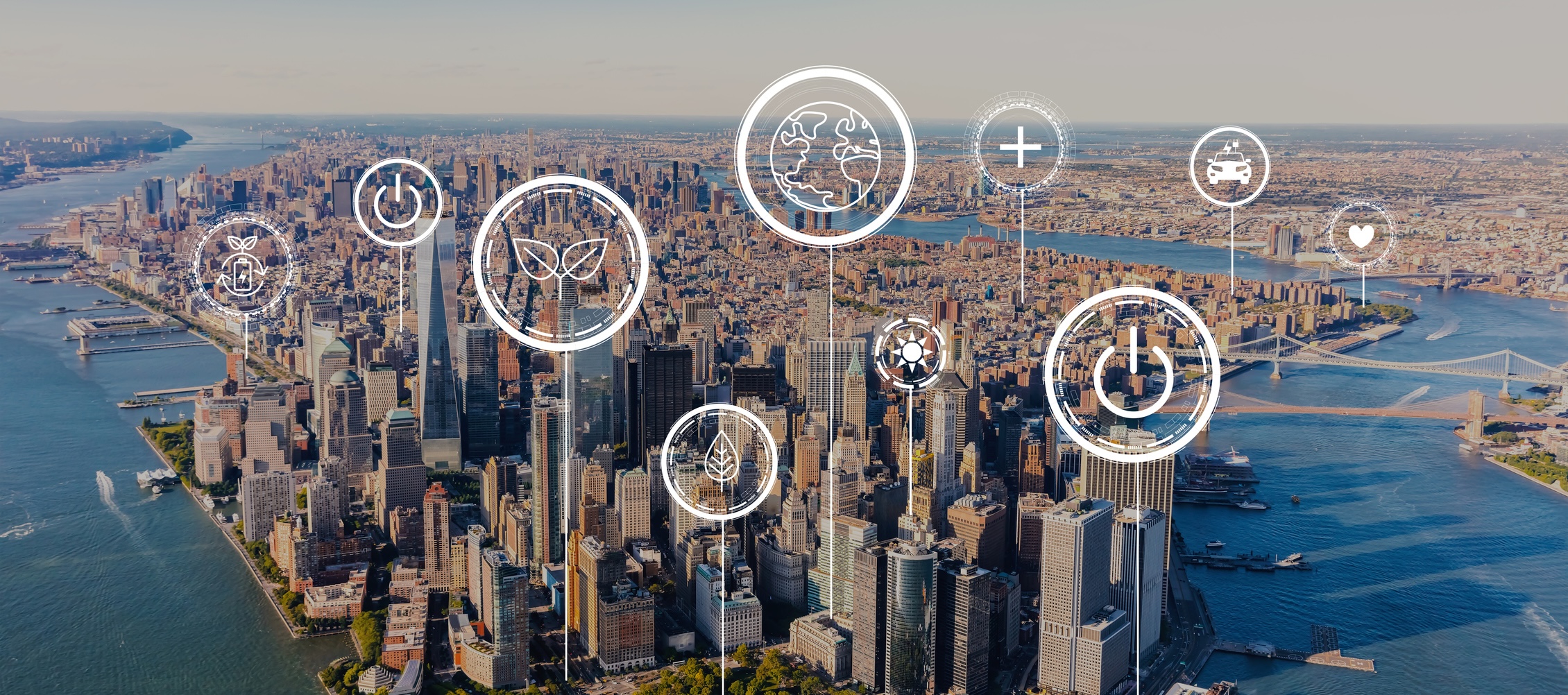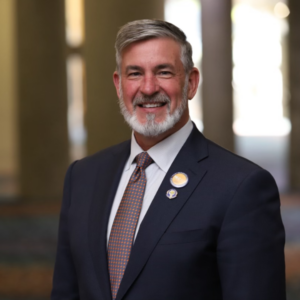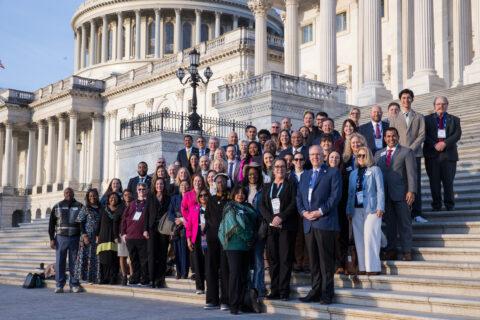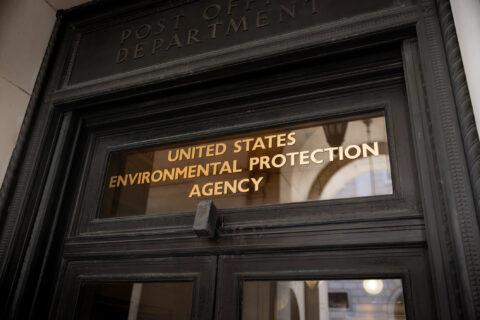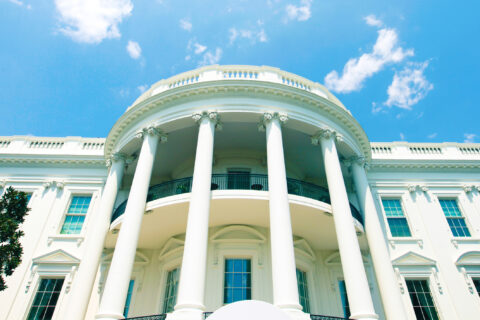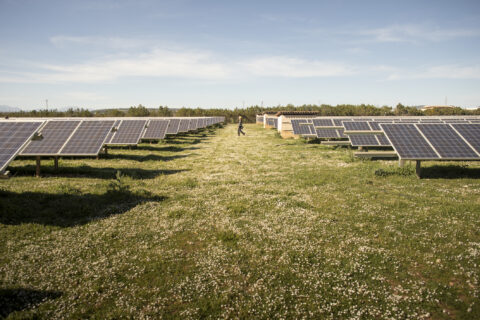Last month, the National League of Cities participated in Climate Week in New York City with local leaders from across the country, nonprofits and businesses committed to addressing the impacts of a changing climate on communities, infrastructure and economy.
NLC showcased local examples and policy tools for utilizing smart surfaces; addressing wildfire risks; integrating strategies to build and preserve affordable homes that are energy-efficient and resilient to extreme weather; and building a big tent of public and private actors to bring clean energy solutions to market.
Our advocacy message during Climate Week was simple: Local leaders need a federal partner to support action through direct federal funding and a national policy agenda that can drive economic markets toward clean energy and investments that make communities and infrastructure more resilient.
A Small City Making a Big Impact
As we often say in local government, the best ideas are the ones we borrow from another community and adapt to meet our own needs. Climate Week was an opportunity not only to learn about successes and challenges in addressing climate change from local leaders across the country, but also to share how a small city like Athens, Ohio (pop. 23,849), is leading with innovative solutions of our own.
For example, in 2017, the city adopted a Sustainability Action Plan that included the development of local and sustainably-generated energy as a component. Athens has since become the first community in Ohio to earn SolSmart Platinum designation, a major achievement in the recognition of our work to streamline permitting and inspection, grow our local solar energy generation, reduce costs and educate and engage the community about the benefits of solar energy.
It all comes down to housing, and Athens is focused on increasing owner-occupied housing, as well as making homes more affordable through lower energy costs. In 2014, Athens became a charter member of a regional partnership with neighboring communities on community choice aggregation: by locking in energy rates, we help buffer residents from higher utility prices. This helps keep people in their homes by lowering their energy bills and making them more affordable.
In 2020, the city passed a resolution declaring a climate emergency, which guides our local action and demonstrates buy-in across city departments and from the community, making other projects like a successful ballot initiative (76 percent affirmative vote) for a carbon fee to fund municipal solar projects and a federal grant application with regional jurisdictions to deploy EV chargers possible.
As local leaders navigate uncertainty regarding the future of our programs and federal funding, it is important that U.S. local governments have a seat at the table with the global community addressing climate change.
Showcasing Best Practices from Cities, Towns and Villages
Throughout Climate Week, NLC showcased not only our tools, resources and technical assistance, but also brought communities together to discuss their resilience journeys. NLC convened a roundtable discussion where local leaders from across the country shared their challenges and successes with building resilience against wildfires, extreme heat, flooding and drought. The event also celebrated the launch of NLC and ICF’s new resource, Building Community Resilience to Wildfires: A Toolkit for Local Leaders.
Stories of success included investing in defensible space, providing community resources for wildfire preparation and building awareness with community members on the health impact of wildfire smoke. One of the biggest challenges identified, however, was how to better move community members and infrastructure out of harms’ way with care. Local leaders urged one another to explore alternatives in managed retreat that would enhance the cost effectiveness of resilience investments while addressing and centering community concerns.
NLC showcased the Cities for Smart Surfaces program and resources such as Elevating Complete Streets Policies with Green Infrastructure and the Smart Surfaces Policy Tracker. A panel, “From Insight to Ordinance: Data-Driven Policy & Nature-Based Solutions for Urban Climate Resilience,” helped cities utilize data-driven approaches to transform city surfaces.
A National Stage for NLC’s Federal Advocacy Action Agenda
Local leaders are first responders when it comes to preparing in advance of extreme weather and natural disasters, as well as in the immediate response and recovery. Local governments are seeing the impacts every day on their communities, residents and businesses — from extreme heat, flooding, drought, wildfires, strong storms and more. As problem solvers, local leaders are dedicated to mitigating these risks and protecting the health, safety and welfare of the community.
With changes and uncertainty around federal funding availability for municipalities to improve their water, energy and transportation infrastructure, local leaders are seeking new partners and innovative financing solutions to continue projects important to their community. Additionally, federal policy changes away from efforts to reduce emissions, invest in clean energy and strengthen infrastructure hamper local leaders’ efforts to implement their own sustainability or climate action plans.
What’s Next?
In November, world leaders will gather in Belém, Brazil for COP30, which is an important milestone for global climate action. Coming 10 years after the Paris Climate Agreement, it is the deadline for governments to submit updated plans for meeting their Paris Agreement obligations.
Local leaders, including NLC President, Mayor Steve Patterson of Athens, Ohio, will also gather in Rio de Janeiro for the C40 meeting before COP to mark 20 years of decisive leadership in tackling the climate crisis. NLC’s participation serves as a timely moment to elevate the critical role of cities, towns and villages to help influence the United Nations negotiations, ensuring local leadership is front and center.
Visit NLC’s social media platforms for more photos and highlights from NYC Climate Week: Facebook, X, LinkedIn and Instagram.
Stay Informed
Subscribe to NLC’s bi-weekly Federal Advocacy Update Newsletter to learn more about how NLC is advocating for cities, towns and villages, and explore ways to get involved.
